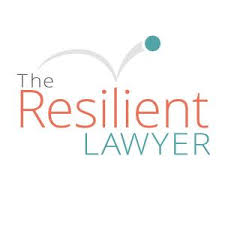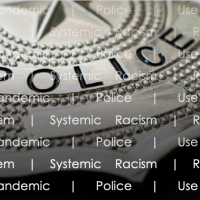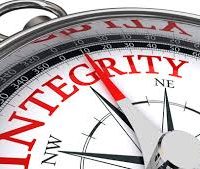
To be a lawyer in the legal profession is a privilege. Nevertheless, the profession of law is challenging. Deadlines are relentless and constant, and the hours long and taxing. There are demanding clients, partners, colleagues, opposing counsel and judges. Female lawyers may “face their own particular set of challenges. Even with the changing role of women in the workplace, female lawyers [may] still have tremendous responsibilities at work and at home. Women [may] still shoulder most of the domestic chores and childcare duties, which is an additional stressor to an already stressed out attorney.”[1]
In addition, “between a shaky economy” and “increasing unemployment”, lawyers like many other professions “are being forced to the edge of uncertainty”. Uncertainty arises from lack of control, and is a major factor in how we interpret the stress of a particular event.[2]
As a result, many lawyers are living lives filled with stress and anxiety. One commentator noted that “many people are living our lives on autopilot, and days and weeks fly by. Some people are caught on a treadmill and are simply trying to get through each day and keep up with the daily grind”.[3]
“Stress / burnout and anxiety are the two most prevalent issues facing lawyers” in Canada.[4]
As lawyers, we know that stress is a fact of life. In small doses, stress motivates performance, helping you to stay focused, energetic and alert. A component of stress is “worry”. This is a normal and adaptive system in the body that tells us when we are in danger. This means that dealing with your “worry” does not involve eliminating it, but rather managing it.[5]
Excessive worry and stress can lead to anxiety. Long term chronic stress will negatively affect a person’s emotions, behaviours, thinking ability and physical health – adversely impacting mood, motivation, productivity and self-esteem. If not addressed and/or managed, the end result may be burnout, poor job performance, and destabilized “family relationships” and “personal life”.[6]
Worry often gives a small thing a big shadow – Swedish Proverb
Common symptoms of stress and anxiety may include the following:[7]
Cognitive & emotional symptoms
- Reduced memory, poor concentration, indecisive
- Anxious, racing mind, constant worrying
- Moodiness, short temper, easily frustrated
- Agitation, unable to relax
- Feeling overwhelmed
Behavioural symptoms
- Procrastinating; neglecting responsibilities
- Nervous habits (biting nails, pacing)
- Fatigue, sleep disturbance
- Eating more or less
- Sexual activity reduction
- Using alcohol, drugs to relax
Physical symptoms
- Muscle tension
- Headache
- Altered bowel habits, high blood pressure
- Nausea, dizziness
- Chest pain, rapid heartbeat
- Frequent cold, flu (weakened immune system)
- Clenched jaw; grinding teeth
There are a number of ways to address work stress.
The CBA practicelink sets out 10 Stress-Coping techniques to help lawyers deal more effectively with distress, and to avoid the negative effects of day-to-day stress:[8]
- Get adequate sleep: although sleep is vitally important to the restoration of the body and mind, many of us practice sleep deprivation on a daily basis by using an alarm clock. Sleep deprivation has many deleterious effects that impair our ability to deal with stressful events, including irritability and reduced cognitive function. It is generally thought that 7-8 hours of sleep is necessary in order to feel refreshed for the coming day, and of course, as we age, a nap during the day may be of benefit, even if it means slightly fewer billable minutes.
- Exercise frequently: research suggests a positive association between exercise and the improvement of symptoms of depression and anxiety. Exercise can also serve to promote self-esteem and contribute to better overall health, both of which foster resiliency in the face of stressful events.
- Use social support: Friends, family, colleagues and intimate partners can be an important source of social support; a vital coping resource. They can help us to see the situation differently, solve problems, lend tangible assistance and provide emotional support. Social support has even been demonstrated to reduce the body’s physiological response to stressful events. Be sure to identify and effectively use sources of social support, and use them for the right reasons.
- Participate in activities: activities can be a great temporary distraction from day-to-day hassles, as well as serious stressful events. Activities put us into contact with individuals who share similar interests, as well as provide opportunities to spend time alone. By occasionally getting lost in these activities, we remind ourselves that there is more to life than work.
- Take vacations: we all need the occasional vacation to recharge our batteries and avoid burnout. Take personal responsibility for taking the vacation time you are entitled to and leave the cell phone and laptop at home. If possible, plan vacations well in advance and schedule work around them.
- Gain control: control is a major factor in how stressful an event appears to us. Where possible, take steps to gain a tangible sense of control over your environment. However, keep in mind that despite our best efforts, certain events will be remain beyond our control. Focus only on those aspects of the situation that you can reasonably expect to influence.
- Use problem-focused coping strategies: use problem-focused coping (e.g., talking openly about a problem, politely but firmly confronting a problem client, making a “to-do” list and carrying it out) as opposed to emotion-focused coping (blaming others or yourself, ruminating about the problem without doing anything).
- Remain flexible: look beyond your initial impression of a stressful event and try reframing it in another light—perhaps there is an upside you’ve overlooked (e.g. “we lost the revenue of a demanding client, but hey, that’s one less headache to deal with”). Similarly, if one coping method doesn’t appear to be effective in a particular situation, try alternative strategies. By remaining flexible, you will be able to meet the shifting demands of your environment.
- Manage your workload: While tempting, you don’t have to do everything yourself! If you have your own practice or are in a management position, ensure that you hire competent people from the outset and give them plenty of responsibility. If you are working in a small team, don’t be afraid to ask for help if you are feeling disproportionately burdened by a case or file. Finally, where possible, insist on scheduling projects or cases in a way that avoids you having to work extended hours. [Time management skills are important.]
- Create numerous short-term goals: all of us need periodic reinforcement to feel as though we are accomplishing our goals and to keep us motivated. Make sure you set a series of small goals, in addition to a few larger, long-term aspirations. The completion of each small task will foster a sense of accomplishment, diminish your worry about your workload and motivate you to pursue further objectives.
Mental health is shaped by what we think and do daily. Actively seeking peace of mind is one proactive way to positively affect our mental health.[9]
Mindfulness meditation – present focused awareness – has been found by researchers to help ease stress, anxiety and depression. Thought and emotional awareness is a form of Mindfulness. Mindfulness is a state of heightened attention to our thoughts and feelings that allows us to sharpen our focus and mental effectiveness more broadly at work. Mindfulness allows us to be aware of our thoughts and feelings during a stressful day, and ensure worries and ‘fears’ are realistic – and allows us to interrupt inappropriate negative inner dialogue and replace it with constructive appropriate ones.[10]
When I look back on all these worries, I remember the story of the old man who said on his deathbed that he had a lot of trouble in his life, most of which had never happened. – Winston Churchill
Commentators have noted that “lawyers are praised for being logical, reasonable, analytical and detached. These same traits, however, can leave some lawyers out of touch with their own emotions”. Accordingly, “in stressful situations, a stream of negative thoughts may be running through [one’s] head without [the person] really even being aware of it. Slow down and be an observer of your thoughts and emotions. Allow yourself to feel whatever you are feeling, but also do a reality check. Is this fear reasonable? Are you really going to get fired? Are you really going to lose that client? Is it really true that there’s no way you’re going to make that deadline? How do you know you’re going to lose that hearing? Do you really have no idea what you’re doing? See if your thoughts and feelings are based on reality. Require evidence, evaluate the merits, cross-examine yourself – use your lawyering skills to your advantage! … Once you interrupt that dialogue, you can start to replace thoughts with more constructive and realistic ones. For example, “Yes, I know it’s going to be a lot of work, but I’ve faced this type of challenge in the past, and I can successfully get through it again.”[11]
Of particular importance, learning to become comfortable with uncertainty has been noted to be an important tool – articles indicate that fear or unease may be “benign in itself”, but “it’s the emotions we attach to it that” may “disable us”. Getting comfortable and learning to “let go of the illusion of control” is noted to be an important step for persons struggling with worry, stress, depression and anxiety.[12]
Another goal of mindfulness is to groom open awareness, increasing self-awareness and insight into what makes the person genuinely happy.[13]
Learning new coping strategies on your own can be difficult, and stress management and wellness workshop and seminars are available to assist in the learning of new skills you can use every day.
There are a number of books and articles that outline and discuss appropriate tools that you may find useful in your own personal ‘stress management toolbox’. Two excellent books written specifically for lawyers on stress management and the ability to have a satisfying career and personal life are:
- Amiram Elwork Ph.D, Stress Management for Lawyers: How to increase Personal and Professional Satisfaction in the Law (3d edition, 2007)
- Nancy Levit and Douglas Linder, The Happy Lawyer: Making a Good Life in the Law (1st edition, 2010)
In addition, 10 to 12 hour workdays are not healthy. Take action to cut your work week to appropriate limits. With technology, work can become accessible 24/7. To recharge yourself physically and mentally, ensure you unplug from the office when you are at home on evenings and weekends, and most importantly when on vacation. Beware the barrenness of a busy life (Socrates).
The tips referenced above are not meant to substitute for medical advice. Despite best efforts, you may need expert medical advice on how to best cope with work-related stress. There are services available to help lawyers deal with stressful aspects of our profession via our health care system, as well as the Canadian Bar Association and provincial Law Society lawyer assistance programs: see Part I of this series.
Living a balanced life and defining success based on your own terms is a lifelong professional journey – and not something that will happen overnight. “Begin with your own inner peace. Then use that inner peace as a platform from which to approach the outer world with perspective, understanding, and patience” (Jonathan Lockwood Huie).
Eric Sigurdson
Endnotes:
[1] Lawyers and Stress, CBA National Magazine, June 2013; Macda Riaz, The Healthy Lawyer: Stress Management, Ms. JD; Owen Kelly, “Coping with Stress and Avoiding Burnout: Techniques for Lawyers”, CBA, October 13, 2009.
[2] Therese J. Borchard, 5 Tips for Living with Uncertainty, World of Psychology, PsychCentral.com, March 5, 2013.
[3] Bill Howatt, Ways to find peace of mind during a busy day, Globe and Mail, August 16, 2016.
[4] Lawyers and Stress, CBA National Magazine, June 2013.
[5] Understanding the Stress Response: Chronic activation of this survival mechanism impairs health, Harvard Health Publications, Harvard Medical School, March 18, 2016; Owen Kelly, “Coping with Stress and Avoiding Burnout: Techniques for Lawyers”, CBA, October 13, 2009; Self-Help Strategies for General Anxiety Disorder, Anxiety BC; Ohio State University, Anxiety and Stress Disorders Clinic.
[6] Leslie Beck, RD, Improving Your Performance: Managing Stress with Nutrition, CBA’s The Mindful Lawyer Series Module 6; Macda Riaz, The Healthy Lawyer: Stress Management, Ms. JD.
[7] Leslie Beck, RD, Improving Your Performance: Managing Stress with Nutrition, CBA’s The Mindful Lawyer Series Module 6; Macda Riaz, The Healthy Lawyer: Stress Management, Ms. JD; also see, Amiram Elwork, Stress Management for Lawyers: How to Increase Personal and Professional Satisfaction in the Law, 3d ed., January 2007; Owen Kelly, “Coping with Stress and Avoiding Burnout: Techniques for Lawyers”, CBA, October 13, 2009.
[8] www.cba.org/Publications-Resources/CBA-Practice-Link/Work-Life-Balance/Health-Wellness/Coping-with-Stress-and-Avoiding-Burnout-Techniques; Owen Kelly, “Coping with Stress and Avoiding Burnout: Techniques for Lawyers”, CBA, October 13, 2009.
[9] Bill Howatt, Ways to find peace of mind during a busy day, Globe and Mail, August 16, 2016.
[10] Harvey Schachter, Meditate your way to better productivity, Globe and Mail, November 19, 2015; Julie Corliss, Mindfulness meditation may ease anxiety, mental stress, Harvard Health Publications, Harvard Medical School, January 15, 2016; George Hofmann, Using Mindfulness to Treat Anxiety Disorders, World of Psychology, PsychCentral.com, January 28, 2013; Therese J. Borchard, 5 Tips for Living with Uncertainty, World of Psychology, PsychCentral.com, March 5, 2013.
[11] Macda Riaz, The Healthy Lawyer: Stress Management, Ms. JD; also see, Amiram Elwork, Stress Management for Lawyers: How to Increase Personal and Professional Satisfaction in the Law, 3d ed., January 2007.
[12] Julie Corliss, Mindfulness meditation may ease anxiety, mental stress, Harvard Health Publications, Harvard Medical School, January 15, 2016; George Hofmann, Using Mindfulness to Treat Anxiety Disorders, World of Psychology, PsychCentral.com, January 28, 2013; Therese J. Borchard, 5 Tips for Living with Uncertainty, World of Psychology, PsychCentral.com, March 5, 2013.
[13] Harvey Schachter, Meditate your way to better productivity, Globe and Mail, November 19, 2015; Julie Corliss, Mindfulness meditation may ease anxiety, mental stress, Harvard Health Publications, Harvard Medical School, January 15, 2016; George Hofmann, Using Mindfulness to Treat Anxiety Disorders, World of Psychology, PsychCentral.com, January 28, 2013; Therese J. Borchard, 5 Tips for Living with Uncertainty, World of Psychology, PsychCentral.com, March 5, 2013.








